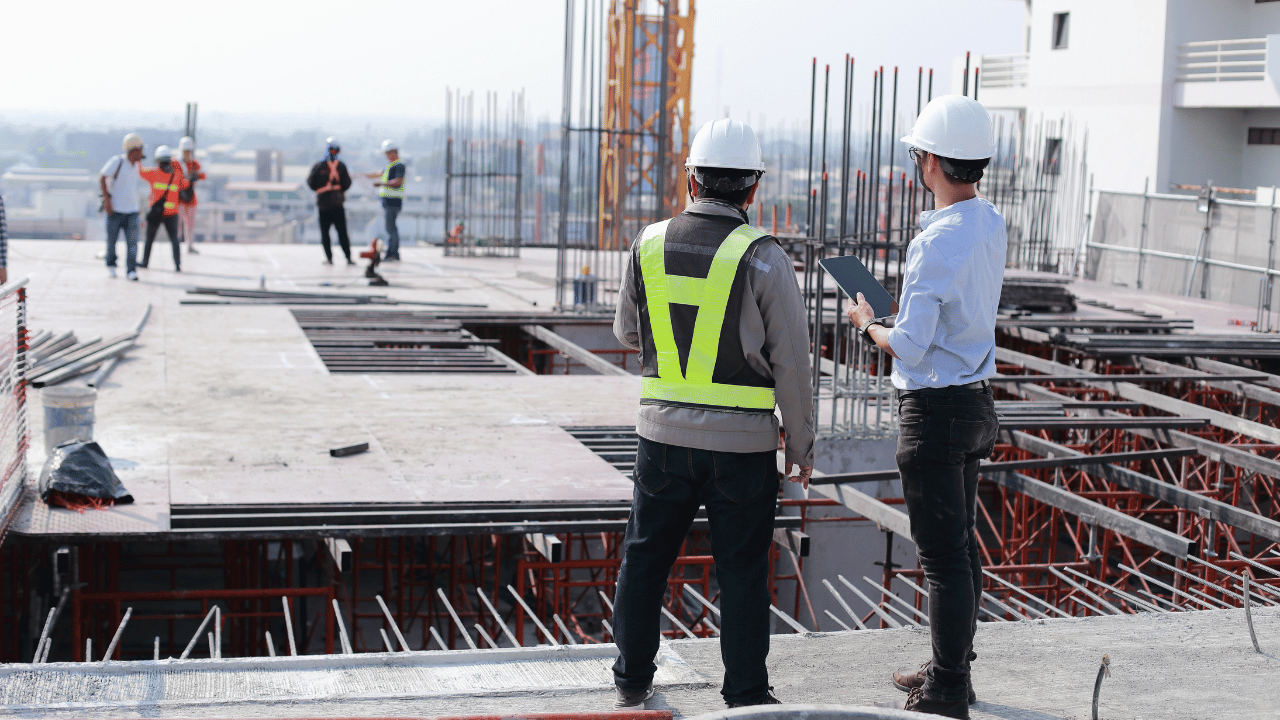
What is a Structural Engineer Inspection?
John Souffront

A structural inspection by a licensed engineer is something you should definitely go for in your home.
Why you may ask?
You see, a home with structural damages can pose a serious threat to the very safety of the inhabitants.
From wall cracks to a sloppy floor to saggy roofing, structural issues can arise just about anywhere in your home. And a problematic structure can make your building vulnerable to water damage, mold, pests, and even structural collapse.
You surely wouldn’t want to stay in a home with such risks. Would you?
But knowing the exact extent of structural problems in a property is difficult since they’re mostly hidden. So, even as a building may look in good shape, you never know what problems are lurking in its structure.
Also, no matter whether your home is newly constructed or an old one nearing the 40 year building recertification deadline, structure inspections are something you shouldn’t ignore. That’s because, apart from older residential structures, problems can even be caused by faulty or unprofessional construction in new homes.
While you can hire a regular home inspector to provide you with professional insights into your home’s current conditions, a structural inspection will go way beyond that.
In case you’re wondering, a structural engineer inspection involves a detailed analysis of your home’s structure. So you get to know not just the present state of the structure but also the repair and restoration requirements.
If you’re looking to conduct the initial structure inspections for your home, you’re sure to have a lot of questions. And that’s precisely why we have compiled together a comprehensive guide to structural building inspections, so let’s dive in.
#1. What exactly is a structural engineer inspection?
A structural engineer inspection is performed to know whether or not your home has a damaged structure.
Structure inspections for any building are done by structural engineers licensed in their state of practice. For instance, to inspect your Miami home, the structural building inspector or engineer should have an inspection license for Florida.
The structural engineer/s will look at your home’s foundation, walls, beams, roof, crawl space, etc., to begin with. They do so to find any potential signals of risk or damage to your home’s structural integrity.
If the structural engineer suspects an underlying problem, an in-depth assessment will be conducted to find its exact nature. And it is only after a thorough evaluation of your home that the structural building inspector will document a report.
The objective structural engineer inspection is two-fold:
- First, the inspection tries to find if your building has been designed and built properly to safely withstand its loads.
- Second, the structure is analyzed to see whether its integrity is maintained and that it’ll stand safe for decades.
Once the structure inspections are complete, the engineer/s will share the findings about the condition of your building. Also, they’ll share their expert opinion on the best way you can maintain and upkeep your home’s structure.
#2. Is the structural inspection report important?
It is indeed essential that you obtain a post-inspection report from the structural engineer upon completion of the inspection process.
You see, the inspection report contains every detail of your home’s structure, including the damages it has induced over time and possible construction defects. And since building inspectors document their opinions on structural refurbishment needs and best practices, you can easily do the fixes.
In fact, your engineer can even help you hire a qualified firm to carry out the necessary repairs.
There’s more to a post-inspection report.
A structural inspection report will come in handy when you’re selling your home or buying one.
How?
Many state laws legally require sellers to disclose the current state of the building and its structure. And the only way you can learn about your home’s conditions and possible defects is through a structural inspection report.
So it’s good to hire an engineer and get a house structural inspection before listing your home for sale. That way, you’ll have enough time to fix potential problems and even have the upper hand in price negotiations since you can assure prospective buyers of structural safety.
The same applies when you’re buying a home, as you can renegotiate the deal based on any structural problems documented in the report.
As you can see, we can’t overstate the importance of a structural inspection report.
#3. When should you go for a structural engineer inspection?
Are you wondering when a complete home structural engineer inspection is needed?
Here are a few signs that you should be on the lookout for:
Cracks in your home foundation, floors, and walls
If you notice cracks in the home foundation or on the wall surfaces, floors, door openings, etc., it’s definitely not a good sign.
Multiple horizontal or vertical cracks on the exteriors and interiors of your home can be an indication of a shifting home foundation. And that can be too risky for your safety as the building’s structure can even crumble and collapse.
The only way you can get to understand the extent of the problem and possible remedy is through a structural inspection.
Further, if you think that the problem is foundational in nature, maybe it is time for a home foundation inspection.
Uneven, sloping, or warped flooring
Do you notice an uneven shape of your floors lately?
If yes, that can be a sign of some structural damage beneath your feet. That’s because homes are built either on a raised foundation or a slab, and if the floor cracks or becomes sloppy, it means there’ve been some structural shifts.
So it’s better to get structure inspections in such instances and fix the issue timely to prevent bigger problems.
Some other conditions that require structural engineer inspection:
- Increasing gaps between the walls and the flooring
- Cracking or leaning of the roof or the chimney
- Drainage or standing water problems in the building
- Doors and windows not closing or opening
#4. How much does a structural engineer inspection cost?
The amount you’ll spend on home structure inspections depends on factors like your property’s size, location, age, etc. For example, you can expect to pay between $350 and $700 for a small to medium-sized home.
However, a large or old structure uninspected for a long time can even cost you upward of $3000.
You may wonder what exactly determines the cost of the inspection?
You see, there are mainly three things that decide how much you pay for the inspection, namely:
- The standard inspection and post-inspection report costs in your locality
- Hourly charges of the structural engineer
- Cost of inspection per square foot
Apart from the standard structural inspection cost, you might want the engineer to draw plans for new additions, home remodeling, or fresh construction. In such instances, you can expect an additional cost of $1500 over and above the standard inspection charges.
Also, for a new construction project, you’ll need to conduct a soil boring test and density test, which can cost you $1410 on average. And if you’re looking to compliment structure inspections with an infrared thermography inspection, it can cost you another $600-$1000.
There you have it, the entire range of expected inspection costs.
#5. How can you prepare for a home structural inspection?
Once you schedule a structural engineer inspection, it’s good to prepare your property for the same. That way, you can have a full-proof and hassle-free inspection process.
What does this prep-up include, you may ask?
You can make your property inspection ready by following some simple and easy steps, which include:
- Clear your home foundation of any dirt or debris
- Repair minor damages to the siding or trim
- Cut back plant growth around your structure
- Brush off the debris from your roof
- Fix small leakages in the plumbing or water heating system
- Make access to the crawlspace easy by clearing it out
- Clean the drainage system of your home
For a proper inspection, it is important that your engineer has full access to areas in and around the structure. So, by following these steps, you can ensure that the structural inspector can easily access each corner of your building.
That sounds easy for sure, doesn’t it?
#6. What if the structural engineer raises red flags?
It is possible that the structural engineer may raise concerns in the inspection report, even ones serious in nature.
As the building owner, it is your responsibility to get these issues fixed right away since they endanger inhabitants’ safety. You can seek a referral from your engineer to hire a professional building repair team to carry out the necessary fixes.
Even if the structural issues are minor and don’t pose an immediate threat to safety, it’s better to fix them. That’s because no potential buyer will be willing to purchase your property with a defective structure.
In fact, having a sound structure is even more important when you’re looking to sell your home. A defective structure will earn your property a bad name in the real estate market, thus reducing its resale value.
#7. How to get the right structural engineer for home inspection?
When conducting structure inspections for your home, it is necessary that you hire a licensed and seasoned structural building inspector.
You see, an unprofessional or inexperienced inspector can create an incorrect inspection report, putting the safety of occupants in danger. And that’s something you’ll want to avoid at all costs, won’t you?
Thankfully, getting an experienced and trustworthy structural engineer is easier than it may sound. All you need to do is get in touch with the right people and research well before hiring someone.
To make this process easy for you, we have put together five ways you can get the right structural engineer. So let’s have a look:
- Ask for a referral from your home building inspector or real estate agent.
- Seek references from reputed construction contractors in your locality.
- Do your research online by visiting trusted websites and looking at legit sources.
- Check Google reviews of different structural engineers
- Reach out to the housing/building department in your county.
That’s simple, isn’t it?
Wrapping it up
It is natural for your home to develop flaws over time, but that doesn’t necessarily mean it will collapse. So instead of worrying about these, you should rather look for ways to tackle them.
Fortunately, a timely structural engineer inspection offers you cost-effective solutions to fix your home’s key structural issues. And even if structure inspections find some critical problems, your engineer will definitely suggest you a way out.
If you’re out there for an ideal structural inspection in Florida, look nowhere else, as we’ve got the most experienced team of structural engineers. From carrying out an extensive structural inspection of your home to effectively fixing the damages, we do it all.
John Souffront
John Souffront is a seasoned leader in the construction and engineering industry, with over a decade of experience at the helm of Souffront Construction & Engineering. Known for his unwavering commitment to excellence and innovation, John has propelled his firm to the forefront of the field, delivering cutting-edge solutions for complex projects around the country.
Build Your Project
Ensure safety and compliance on your construction site with our experienced team. Call us today.
Contact Us




